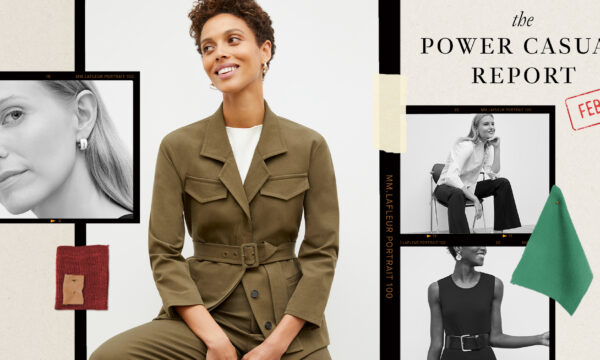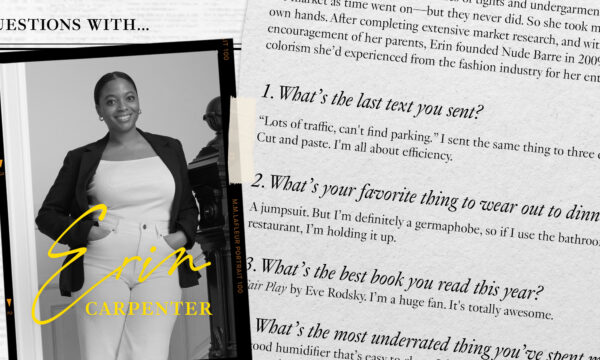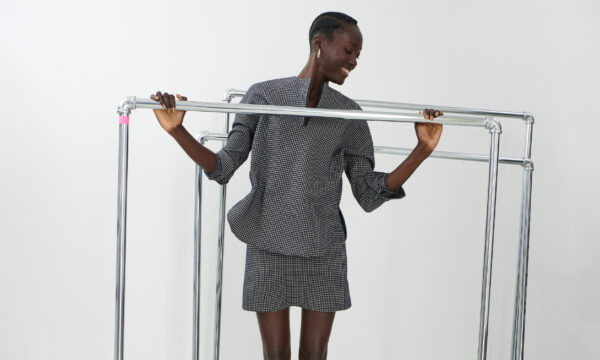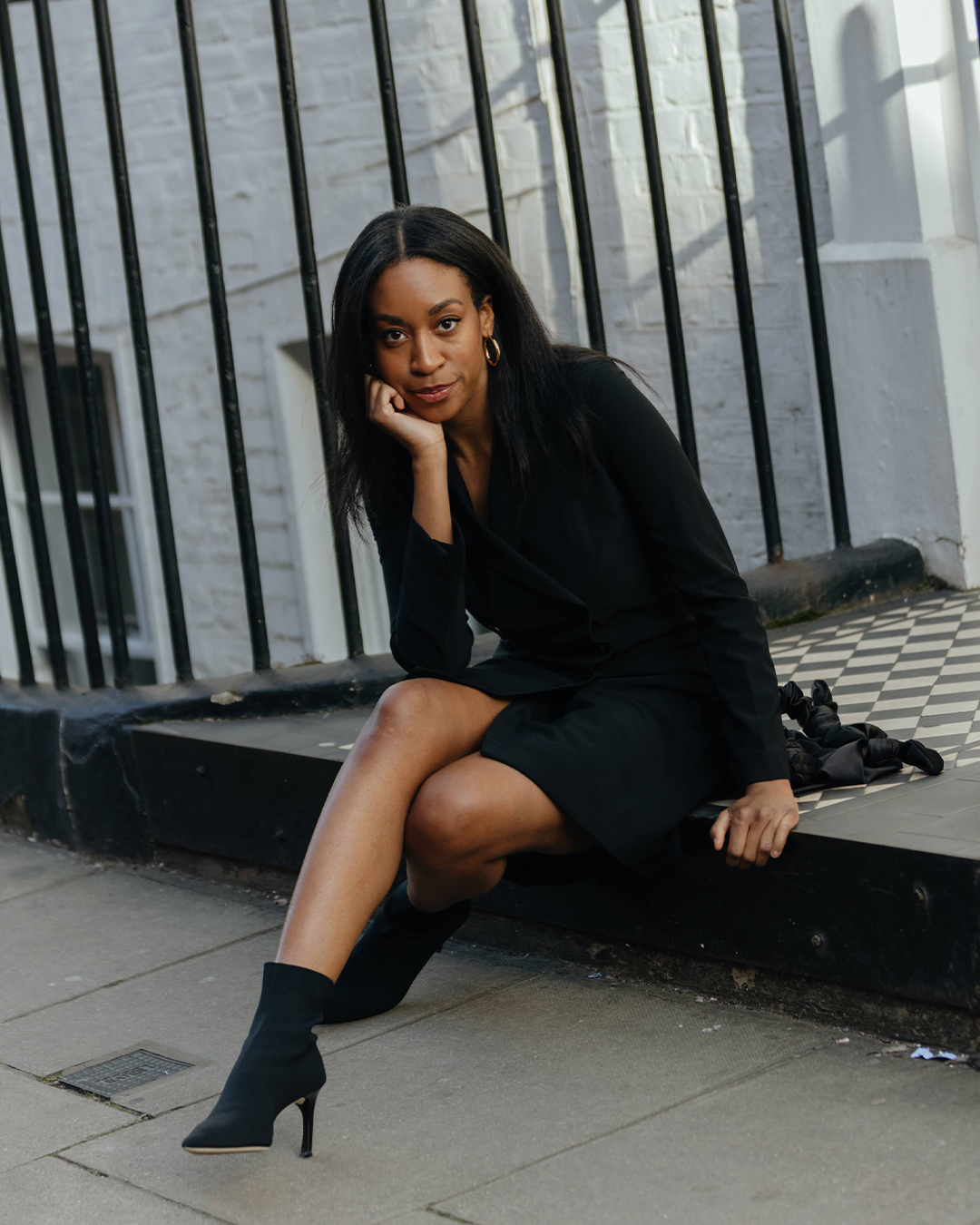
Shop This Look
Fashion Expert Chrissy Rutherford Left the Corporate World—and Never Looked Back
The style pro behind our latest capsule shares a glimpse into her career, her brain, and her closet.
In case it wasn’t clear from that long list of titles, Chrissy Rutherford is a true multi-hyphenate. After a prolific nine-year career at Harper’s Bazaar, she left her role as Special Projects Director to go freelance full-time. And in June of 2020, she teamed up with Danielle Prescod to co-found 2BG Consulting, a firm that advises brands and influencers on adopting anti-racist communication approaches. Chrissy also shares her writing in her newsletter, FWD JOY, and is known across the Internet for speaking out honestly about mental health and her personal struggles with anxiety.
All that, and she’s something of a world traveler. In fact, Chrissy recently went on a trip to London—her second-favorite city after her hometown of New York—and decided to take her capsule on the road with her. “I have this thing with London,” she says. “I just really, really enjoy the energy here. When I was an editor at Bazaar, I got the opportunity to start covering London Fashion Week. I did not want to go. It felt like it was too much after going through ten days of New York Fashion Week. But after one season, I just fell in love with the city. I’ve made really good friends here. I feel like I have a really nice network.”
Our founder and CEO, Sarah LaFleur, had the chance to chat with Chrissy during her trip about her decision to leave the corporate world, her advice on dealing with anxiety while pursuing an ambitious career, her best tips for dressing up denim, and so much more. Read their full conversation below.

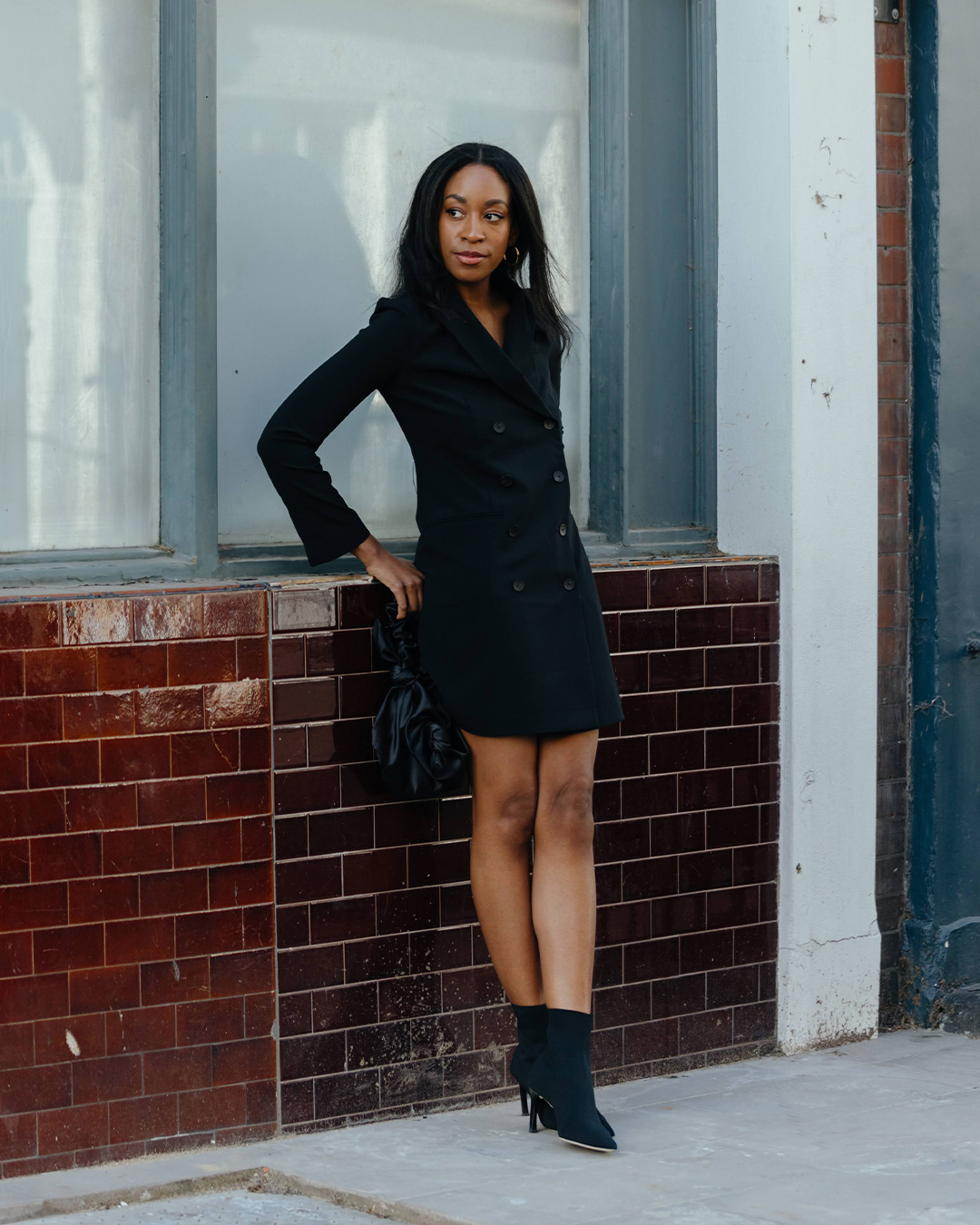
Want more M Dash?
Sign up for our weekly newsletter.
Thank you!
Her Closet
Sarah: Coming out of the pandemic, we definitely saw a new dress code emerge, and we’re calling it Power Casual. Put very simply, it’s a step above totally casual, but a step below business casual. It connotes, “I’ve come to put my best self forward.” At the same time, I don’t think it’s nearly as stiff or as formulaic as business-casual dress codes pre-Covid. How has your style evolved pre-pandemic to now? What are you wearing these days?
Chrissy: My style is constantly evolving. When I first got to Bazaar, I loved to dress up. I would always wear a dress or skirt or trousers, and I was not really into denim. Then I got influenced by my fashion director, who was my best friend at work and would wear denim all the time. Suddenly, I started to amass this huge denim collection. I really leaned into it. There’s something really interesting about denim. It’s inherently casual, so playing around with it and making it feel really dressy is exciting.
Give us a tip. How do you make denim look dressy?
With a really great blazer or jacket. I’m very into leather blazers right now. So for me, a pair of high-waisted denim with any kind of top, a leather blazer, and ankle boots is perfect.
You’ve worked in the fashion industry for a long time, so I’m guessing you’ve had access to some incredible closets that most women have only dreamt of. Now that you’re in the world of freelance, are you dressing differently from when you were in the magazine world?
Like many people, I dressed more casually during lockdown. I’d still get dressed up once in a while, because that’s just who I am, but I was leaning into the sweat sets. Now, I really feel that urge to dress up again and to have fun with my clothes.
How would you describe your style?
That’s always such a tricky question. But for me, it’s important to look polished. So even when I’m wearing something casual, say a knit set or an elevated sweat set, I want to pair it with a trench coat and really nice sneakers, or some black, chunky-soled boots. I also like to play around with masculine and feminine themes, like wearing a pair of loafers with a mini dress, or a pleated mini skirt with a blazer. I love that.

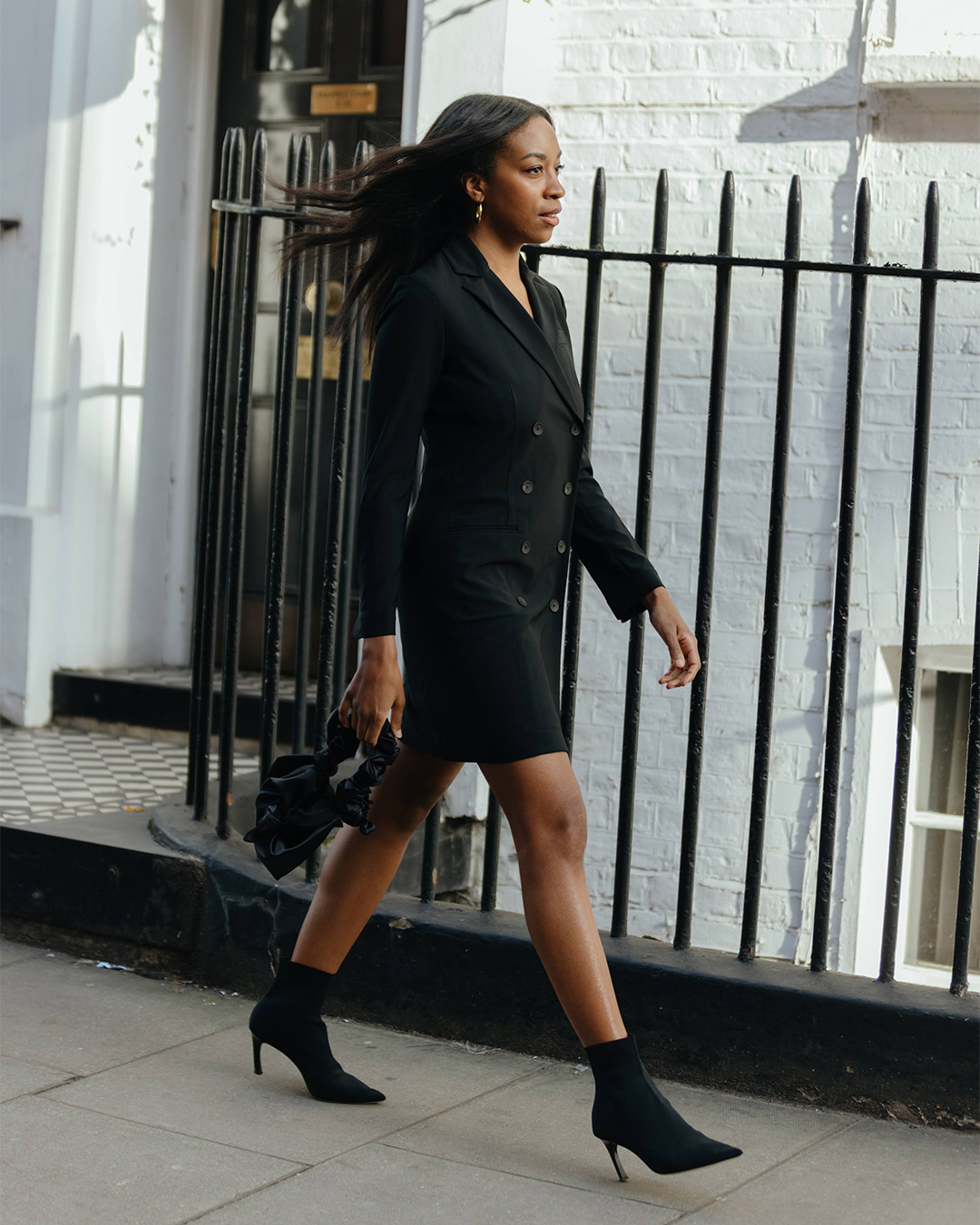
I also love that. What’s the first thing you consider when you’re deciding what to wear each day?
Number one, it’s about what I’m doing that day. And two, I ask myself, “What kind of mood am I in?” I’m very, very instinctual with my style, and a lot of times, what I wear speaks to my mood. But also I think fashion can be used to also transcend your mood. There have been many times, especially when I worked in an office, where I was like, “Ugh, I’m tired today. I don’t feel like doing all the things that I have to do,” and so I’d put on a suit that made me stand up a little bit straighter and helped me feel like I could make the most of my day.
Do you have a go-to capsule?
Yes, absolutely. Especially during the colder months, I have a uniform that I like to go by. It’s usually a turtleneck, either jeans or a nice pair of trousers, either an ankle boot or a loafer, and either a blazer or some other cool kind of jacket, like a bomber. That’s really my go-to.
Let’s talk about the capsule that you styled for M.M. What drew you to these pieces?
One piece I was instantly drawn to was the blazer dress. I love that look so much, because it’s a little play on the masculine versus feminine. It has the look of a double breasted jacket, but then it’s a little mini dress—I feel like that’s my essence in a garment.
I was really into the Emalis—it’s such a great jacket—and all the knits are very classic, and I know I’ll have them in my wardrobe for a long time. I also really, really love the gingham Allison anorak, because I grew up in Westchester, so that prep part of me is still very much ingrained. I’m always going to go for a gingham print.
For anyone who wants to look more fashionable in the workplace, what is your style tip?
Don’t overthink it. Sometimes people feel like the basics are boring, but they’re not when they’re done right. And the other important thing is having clothes that really fit you and that are tailored to you (this is a tip, of course, that you always give as a fashion person). A couple of months ago, I took a few of my skirts and pants to get nipped in at the waist, and it transformed those pieces for me. It made it so I wasn’t fidgeting with them all the time. I like to wear a lot of high-waisted things, but they have to hit just right for me to feel like they’re doing what they need to be doing.
Her Career
You’ve had a really illustrious career. Most recently, you were the Special Projects Director at Harper’s Bazaar before deciding to go out on your own. What made you take that leap?
Working in magazines was always my dream job, and I spent nine years at Bazaar, which is kind of unheard of. I had a really great team, and I felt very fortunate. But I think the fashion media landscape has changed so much, and the Internet has changed so much about what people are drawn to. The pace started to burn me out big time. I was doing a lot of different things, but there was this part of me that I didn’t really get to exercise, and it was itching to get out. At the end, it felt like, “I’ve loved my time here, but time’s up.”
And then, rather than seek another job at an established magazine, you said, “Let me go out and do it on my own.”
I really wanted freedom. I don’t think I would’ve been happy working another nine-to-five. I also saw a lot of my friends leaving the publishing world, and seeing their success made me realize, this is what I want for myself.
What is the best thing and the most challenging thing about running your own business?
The best thing is being in a position to create my own life. I think I’m very fortunate to get to choose what I want to work on—and what I don’t want to work on. Not everyone who owns their own business is in that position. So I feel very, very fortunate for that. The worst part is taxes.
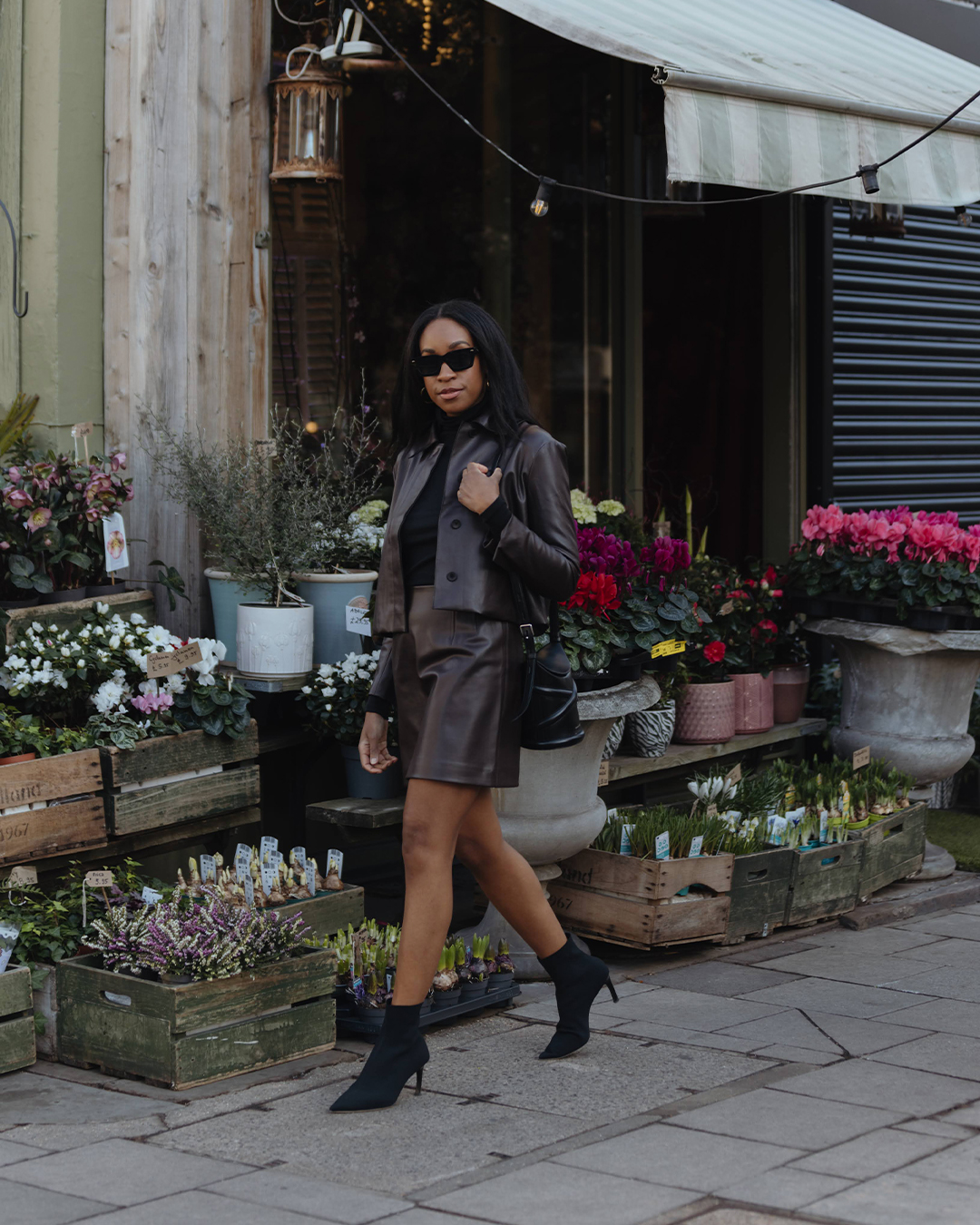
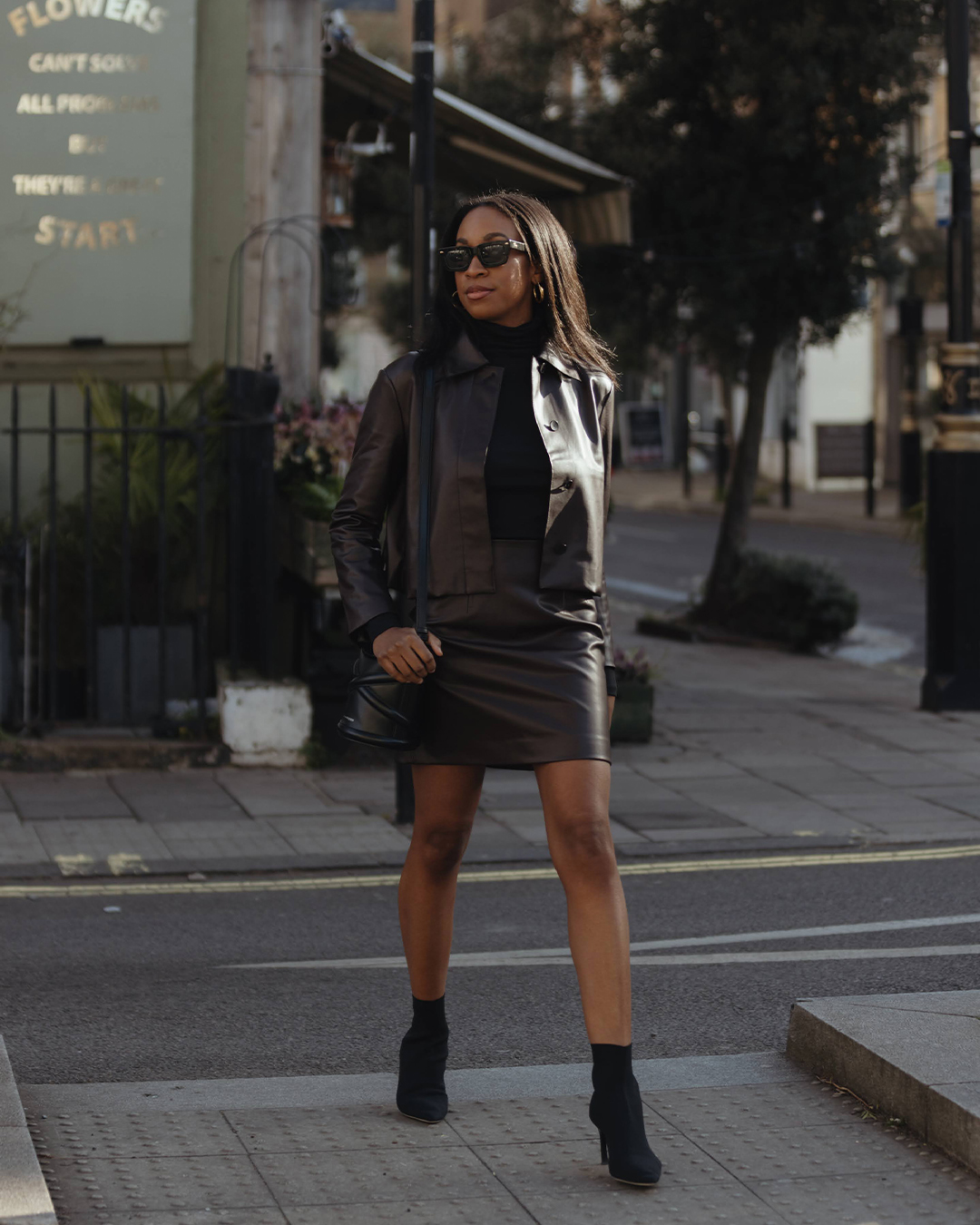
I loved this quote from your recent newsletter: I’m sure there are people out there who think it’s “cringe” to acknowledge or to own our success so publicly, but I just don’t think we do it enough, especially as women, and even more so for Black women. We live in a world where it’s so easy to focus on what we’re lacking, how we’re not matching up to our peers, and what our weaknesses are instead of acknowledging and leaning into our strengths with all we’ve got. Your quote made me think of M.M.LaFleur’s mission statement, When women succeed, the world becomes a better place. What does success look like to you?
I think the definition of success is always going to evolve for me, but right now, it’s really about freedom. Literally, every day, I come back to that word. I feel gratitude in every fiber of my being for the freedom I have to create the life that I want for myself, to design what my days look like, to work on the projects that I want to work on, and to be able to turn down the things that don’t feel like the right fit for me.
That freedom is so important to me, especially coming out of corporate America, where there is this playbook that you have to subscribe to. You have to do things in a certain way, and you have to work in a certain way. The reality is, in an office environment, not everyone actually likes to work the same way. Some work better in the morning. Some work better at night. Sometimes, I love to write after midnight. Luckily, I have the freedom to stay up late working, then sleep in and start all over again.
What tips do you have for other women on celebrating their success? How can we own our success in the way we should?
Literally speaking it out loud and telling someone—a friend, a parent, whomever—“I killed it on this work project. I did a really good job, and I feel so good about it.” When we do a good job, we worry about being seen as a bragger. We’re always made to feel like we’re supposed to play small, because we might offend other people, or because people are going to see us as not being humble.
I’m lucky I’m able to share my success in my newsletter and on social media. But sometimes, it’s just about sharing it with my friends or my family, knowing that I’m doing a good job, and being able to validate myself. Often, we are looking for external validation, but I think it’s most important that we get it from ourselves.
Her Brain
While it’s become more common to talk about mental health, few people actually get into the messy parts of it. You’re known for speaking honestly about your mental health struggles, and I feel like you really allow readers into the messy parts. You’ve also been very professionally successful. What advice would you give to people who are similarly ambitious in their careers but also trying to manage mental health struggles?
My number one recommendation is always going to be therapy. I don’t know where I would be without it. Therapy has been so instrumental to my personal growth and has really given me the tools to help manage my anxiety, which allows me to be the person that I am and function in the way that I do.
When I was a teenager and first navigating anxiety, it was very easy to let it derail everything that I wanted to do. After my first panic attack, I quit ballet and tap, and I stopped doing school plays and the school chorus. I had been doing all of those things, and then suddenly, I couldn’t. So I’m very familiar with that feeling of anxiety taking over your life and stopping you.
With the help of therapy, I’ve now come to a place where I’m able to recognize that part of the journey is knowing that, yeah, sometimes, you’re still going to do things that scare you. The point isn’t to not be afraid anymore. It’s to be afraid and still do it. I have really bad anxiety about flying. Every flight I get on, I am anxious—but I’m not going to let that stop me from doing the things that I want to do.
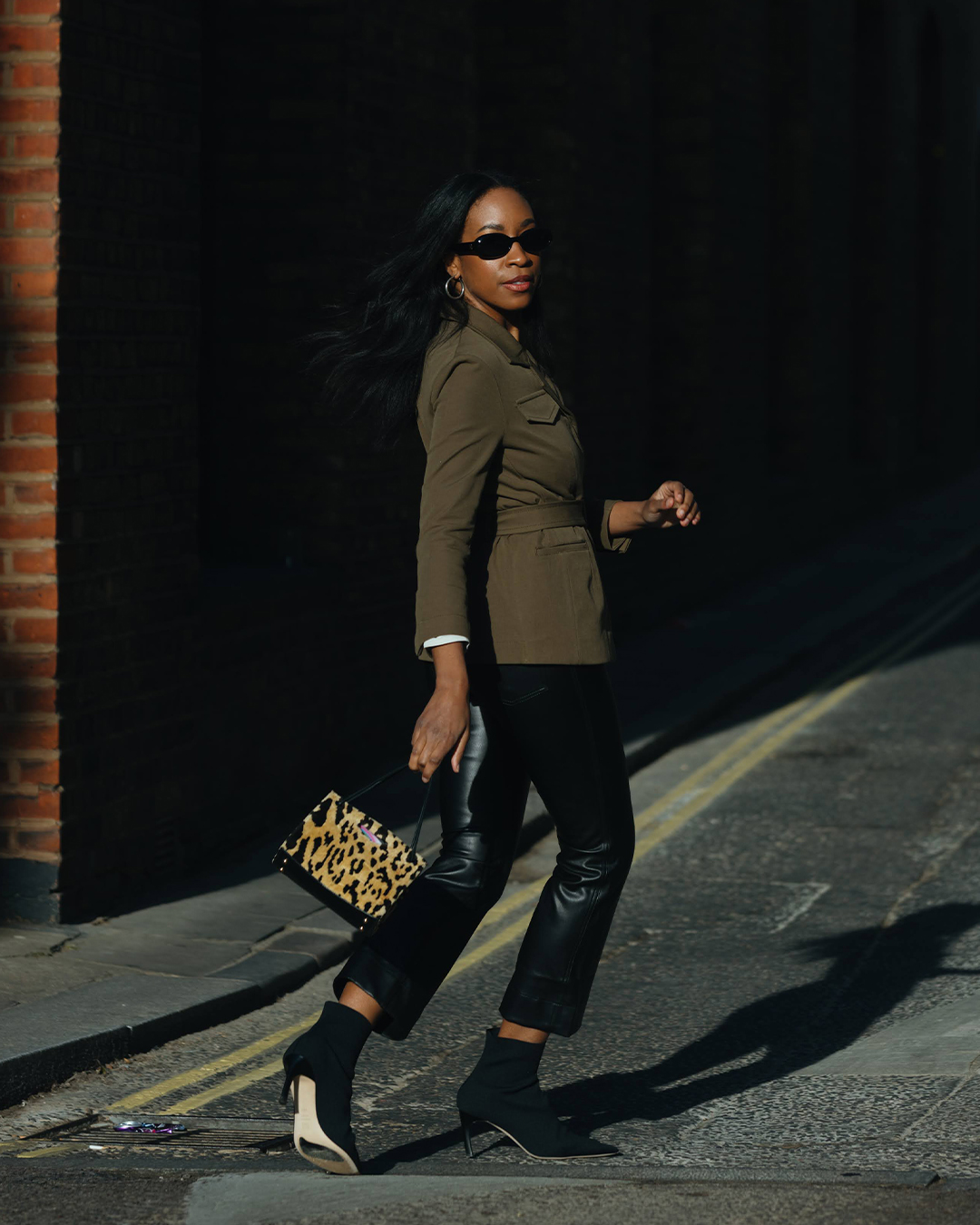
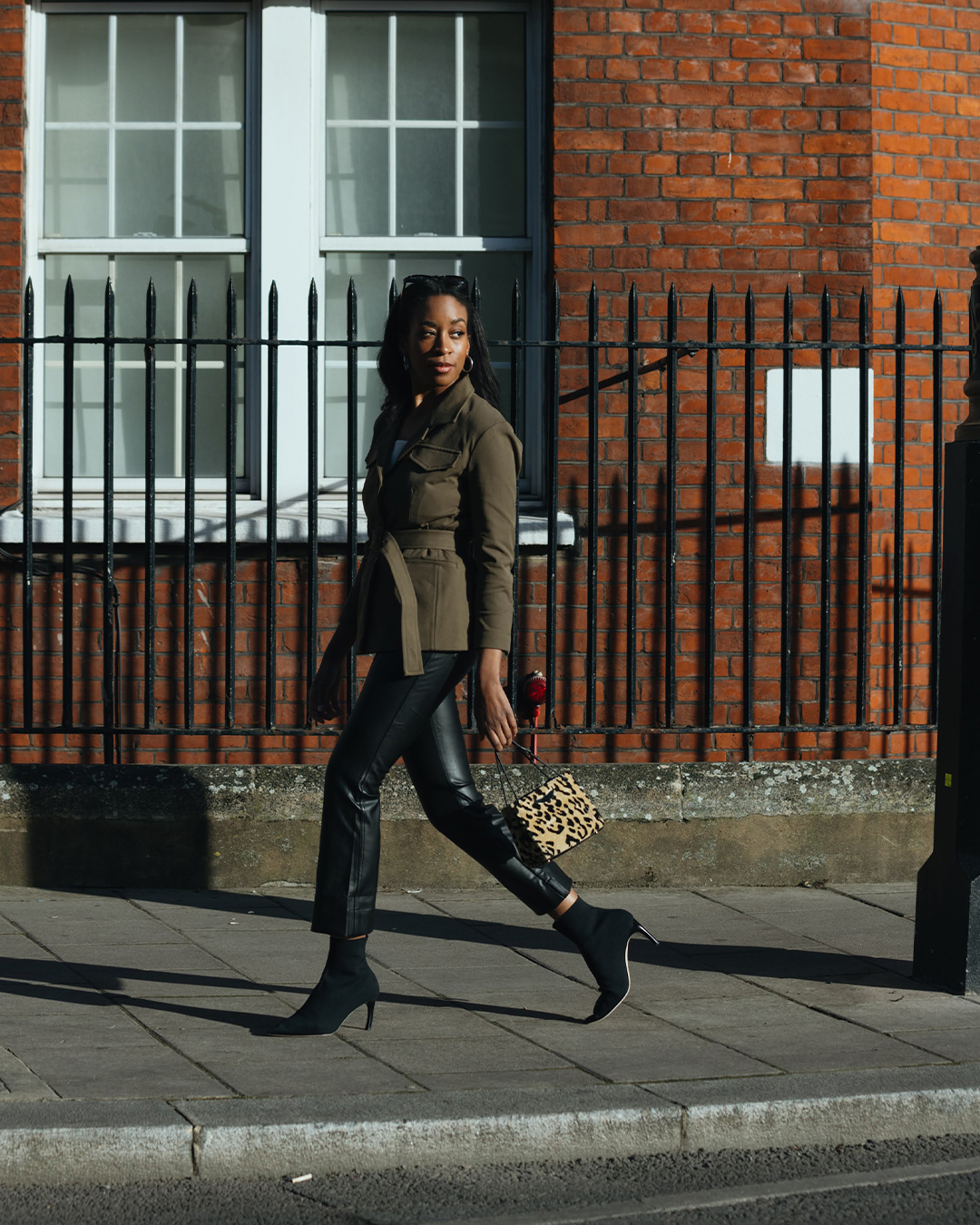
So much therapy is now online. How did you navigate the changes that Covid brought, both in terms of therapy and in general?
I had actually taken a break from therapy at the top of 2020, because I was leaving my job. I was going to be without health insurance, and I was also going to be traveling. But even though there was a lot of uncertainty around the pandemic, I didn’t personally feel troubled by it. I’m probably in a minority here, but I’m someone who loves being by myself. So the idea that I was locked up in my studio apartment by myself for weeks on end—I was thriving. That said, I started going back to my therapist later that summer. And one thing that I missed about being in person is the little nuances that therapists are able to pick up on. There were so many times when I’d be telling a story, and my therapist would say, “I can see your breathing is really shallow right now,” or “You’re not breathing.” That gets lost over Zoom.
My therapist helped a lot when I moved back home with my parents. Living with your parents as an adult—even if you have a good relationship with them, which I do—is extremely challenging. You have to deal with a lot of triggers and things that maybe you didn’t even realize bothered you. You’re suddenly confronted, day after day, with the dynamics that you’ve pushed away. I don’t think I would’ve been able to stay at my parents’ house for as long as I did if it weren’t for my therapist.
It’s hard to give others advice on how not to let anxiety stop them from being successful—anxiety is so deeply personal, and everyone is different. I know there are fears that will always be part of my life, but I try not to let them rule my life. There are so many things I want to achieve in my life, and I am determined not to let fear stop me.





